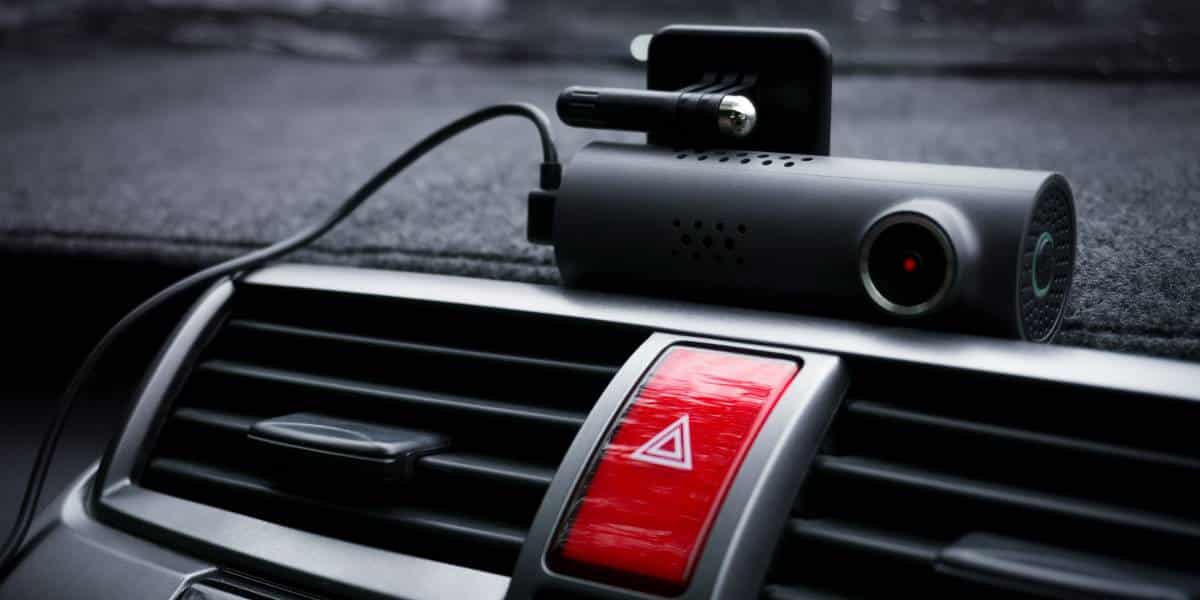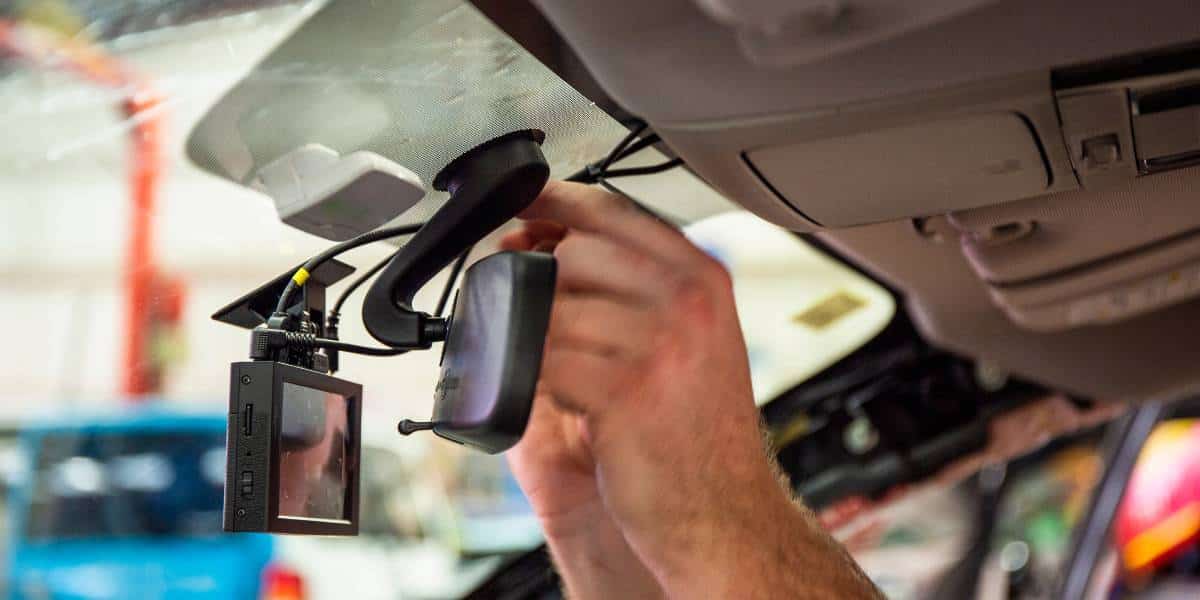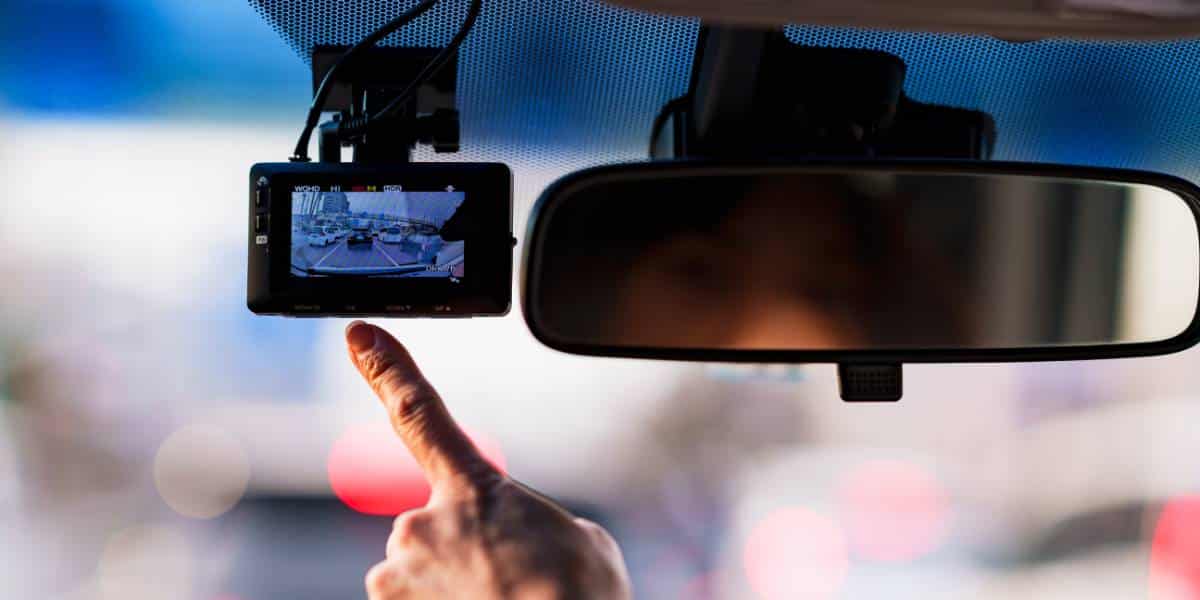
Dash cams are becoming more popular among drivers because they record everything that happens on the road. But many people wonder: Can dash cam footage be used against you? Understanding how dash cam footage can be used is important, especially if it might be used in a legal case. In this blog post, we’ll explore whether dash cam footage can help or hurt you, how to access and view it, and tips on managing this valuable information.
What is Dash Cam Footage?
Dash cam footage is the video recorded by a camera installed in your car, usually on the dashboard. These cameras often record everything happening around the car while you’re driving. The footage is saved on a memory card and can be used later for things like insurance claims, legal evidence, or just personal records.
Because dash cams have become more affordable and reliable, many people are using them. But, like any device that records information, there are both advantages and disadvantages to consider.

Can Dash Cam Footage Be Used Against You?
One of the most common concerns people have about using a dash cam is whether the footage it captures can be used against them in a legal situation. So, can dash cam footage be used against you? The simple answer is yes, it can. Dash cam footage is a double-edged sword. While it can serve as a powerful tool to protect you in various situations, it can also be used as evidence against you in court. Let’s dive deeper into how this works and when dash cam footage might either hurt or help you.
When Dash Cam Footage Might Hurt You
There are several scenarios where dash cam footage can be used against you, potentially leading to legal trouble or financial loss.
1. Traffic Violations
Imagine you’re driving down the road, and you accidentally run a red light or exceed the speed limit. If your dash cam is recording, it captures this moment. While a dash cam is great for protecting you from false accusations, it also records everything you do behind the wheel—good or bad. If the police suspect you’ve broken the law, they can ask for your dash cam footage as part of their investigation. This footage can then be used as evidence to prove that you were speeding, ran a red light, or committed another traffic violation. In court, this evidence could lead to fines, points on your license, or even more serious penalties, depending on the nature of the violation.
2. Determining Fault in an Accident
Another situation where dash cam footage might work against you is during an accident investigation. If you’re involved in a car accident, your dash cam can provide a clear record of what happened. This is usually a good thing if you’re not at fault. However, if the footage shows that you were distracted, driving recklessly, or otherwise at fault, it can be used by the other party or their insurance company to hold you responsible for the damages. This could mean paying for repairs, medical bills, and other costs associated with the accident.
3. Inconsistent Statements
In legal cases, your credibility is crucial. If you’re involved in an accident or any other legal matter and make a statement about what happened, the accuracy of that statement can be critical. Let’s say you tell the police or your insurance company that you were driving cautiously, but your dash cam footage shows that you were actually speeding or weaving between lanes. This discrepancy can hurt your credibility and weaken your case. The footage can be used to prove that your version of events isn’t accurate, which could lead to unfavorable outcomes in both criminal and civil cases.
When Dash Cam Footage Might Help You
While there are situations where dash cam footage can be used against you, there are also plenty of scenarios where it can be incredibly helpful. Here’s how it can protect you:
1. Defending Against False Claims
One of the biggest benefits of having a dash cam is its ability to defend you against false claims. Imagine you’re involved in an accident, and the other driver falsely accuses you of causing it. Without witnesses, it might be your word against theirs. But with a dash cam, you have concrete evidence of what really happened. The footage can show that you were following traffic laws and driving safely, helping to clear your name and protect you from being wrongly blamed for the accident.
2. Supporting Insurance Claims
Filing an insurance claim after an accident can be a long and stressful process, especially if there’s disagreement about who was at fault. Dash cam footage can make this process much smoother. If you have clear video evidence of the accident, you can show your insurance company exactly what happened. This can speed up the claims process and increase the chances of a favorable outcome. It’s beneficial if there are no other witnesses to support your account of the incident.
3. Protection Against Fraud
Unfortunately, some people try to stage accidents to collect insurance money. These staged accidents can be tricky to prove and might leave you facing unfair claims. However, if you have a dash cam, the footage can show that the accident was not your fault or even that the other party deliberately caused it. This can protect you from fraudulent claims and save you money and stress.

Additional Considerations
Beyond these examples, there are a few more things to think about when it comes to dash cam footage and its legal implications.
- Who Owns the Footage? Generally, if you own the dash cam, you own the footage it records. However, if law enforcement believes the footage contains evidence of a crime, they may be able to subpoena it, meaning you would be legally required to hand it over.
- Privacy Concerns: It’s important to be aware that dash cam footage may inadvertently capture other people’s private moments, such as conversations or activities that are not meant to be recorded. Depending on where you live, there may be laws governing what you can do with such footage, especially if it includes people’s faces, license plates, or private property. Always check local laws before sharing dash cam footage.
- Editing or Deleting Footage: Some people might think about editing or deleting footage that shows them in a bad light. However, this could lead to more legal trouble, as altering evidence can be considered tampering and might result in criminal charges. It’s always better to be honest and let the legal process unfold with all the evidence available.
Dash cams are a valuable tool for drivers, offering protection and accountability on the road. However, it’s crucial to recognize that this footage can also be a double-edged sword. While dash cam footage can help defend you against false claims and bolster your insurance case, it can also be used to demonstrate fault in an accident or to prove that you committed a traffic violation.
This is where the experience of William Price P.A. becomes essential. With decades of experience in handling complex legal cases involving General and Professional Liability, our team understands the nuances of how dash cam footage can impact your legal standing. We’re here to help you navigate these challenges, using our deep knowledge and experience to ensure your rights are protected and to provide you with the strongest defense possible.
The Legality of DashCam Footage
Dash cam footage is becoming more common in courtrooms, but whether it can be legally used as evidence depends on a variety of factors. For footage to be admissible in court, it must meet specific requirements, such as being directly related to the case and being a clear, unedited recording. The court will also consider how the footage was obtained.
For example, if the footage was captured on public roads, it’s typically allowed in court because there is generally no expectation of privacy in public spaces.
However, the situation becomes more complicated if the footage was taken in a way that violates someone’s privacy. For instance, if your dashcam records inside someone’s private property without their consent, this footage might not be allowed in court due to privacy concerns. This can make it tricky to navigate the legal landscape of dashcam usage.
Luckily, we have significant experience in dealing with cases involving dashcam footage. Our legal team can ensure that your footage is presented effectively in court, or if necessary, challenge the use of footage that could be harmful to your case. With our deep understanding of evidence law, we can guide you through the complexities of using dashcam footage in legal proceedings, making sure your rights are fully protected.
Use of Dash Cam Footage by Authorities
Law enforcement and other authorities may request or even require your dash cam footage if they believe it contains evidence related to an investigation. For example, if you’re involved in a traffic accident or are suspected of a traffic violation, the police might ask to view your footage. If the footage shows a traffic violation or clearly identifies fault in an accident, it can be used as evidence to issue fines, or in more serious cases, to pursue legal action against you.
It’s important to understand that while you have the right to refuse a request from the police to view your footage, things change if a subpoena is issued. A subpoena is a legal order that requires you to hand over your footage, and ignoring it can lead to legal consequences.
Our firm can provide legal advice on how to respond to requests from authorities and ensure that your rights are upheld. With our extensive knowledge of legal rights and procedures, we can offer the best possible defense, ensuring that any dash cam footage is used fairly and within the bounds of the law.
Privacy Concerns with Dash Cam Footage
Privacy is a big issue when it comes to dash cam footage. While these devices can be incredibly useful, they also raise important questions about privacy. For example, if your dash cam records people or private property without permission, it could lead to legal problems, especially in areas with strict privacy laws.
Law enforcement may access your dashcam footage if they believe it contains evidence of a crime, but they generally need a warrant or your permission to do so. However, when footage is captured in public places, privacy concerns are usually lessened, as there’s no expectation of privacy on public roads.
At William Price P.A., we are dedicated to protecting your privacy rights. Our legal team is well-versed in the laws surrounding privacy and dash cam usage, and we can help you understand your rights if your footage is requested. If you believe your privacy has been violated through the use of dashcam footage, we can provide the legal support you need to address the issue.
Third-party Use of Dash Cam Footage
Another important consideration is whether third parties, such as other drivers, insurance companies, or even private individuals, can use your dashcam footage against you. If someone else gains access to your footage—whether legally or by accident—they might try to use it to support their claims. For instance, an insurance company could use your footage to deny a claim or to argue that you were at fault in an accident.
To prevent your footage from being misused, it’s crucial to control who has access to it. While sharing footage with your insurance company or lawyer can be helpful, you should be cautious about sharing it with others. If you find yourself in a situation where your footage is being used against you by a third party, William Price P.A. is here to assist. Our firm is experienced in handling these complex situations, ensuring that your dash cam footage is used in a way that protects your interests and upholds your legal rights.
Tips for Managing Your Dash Cam Footage
Now that you know how to access your footage, it’s essential to manage it properly. Good management practices can save you time and ensure that critical footage is available when you need it.
Regularly Back Up Your Footage
Backing up your dash cam footage is crucial to prevent data loss. Memory cards can fail, get corrupted, or even get lost. Here’s how to ensure your footage is safe:
- Transfer Files to a Computer: After a significant event, such as an accident or incident you may need to reference later, transfer the footage from your memory card to your computer. This creates a backup in case the memory card is lost or damaged.
- Use External Storage: Consider backing up important footage to an external hard drive or USB stick. This provides an additional layer of security.
- Cloud Backup: If you don’t have a cloud-enabled dash cam, you can still manually upload important footage to cloud storage services like Google Drive, Dropbox, or OneDrive. This ensures that even if your physical devices fail, your footage is accessible.
Organize Your Files
Keeping your dashcam footage organized makes it easier to find specific clips when you need them. Here’s how to stay organized:
- Label by Date and Event: Rename your files to include the date and a brief description of the event. For example, “2024-08-21_Morning_Commute” or “2024-08-21_Accident_At_Intersection.”
- Create Folders: Organize your footage into folders by month or type of event. This makes it easier to locate specific files later on.
- Regularly Review and Delete: Periodically review your footage and delete files you no longer need. This frees up space and keeps your storage organized.
Respect Privacy
While dashcam footage can be helpful, it’s important to respect the privacy of others. Here are some tips to ensure you’re not violating anyone’s privacy:
- Don’t Share Without Consent: Avoid sharing or posting footage that shows other people, their vehicles, or their property without their permission. This is especially important if the footage could be considered sensitive or private.
- Blur Faces and License Plates: If you must share footage, consider using video editing software to blur out faces, license plates, or any other identifiable information. This helps protect the privacy of those captured in the footage.
- Be Aware of Local Laws: Different areas have different laws regarding video recording and privacy. Make sure you’re aware of the rules in your area to avoid any legal issues.
Accessing and managing your dashcam footage doesn’t have to be complicated. Whether you’re using a memory card, a smartphone app, or cloud storage, understanding the different methods can help you keep your footage safe and ready to use when you need it. By backing up your files, staying organized, and respecting privacy, you can make the most of your dash cam and ensure that it’s always a valuable tool in protecting yourself on the road.
Should You Share Dash Cam Footage?
Sharing dash cam footage can be tricky. It might help prove your case, but it could also bring legal risks. Before sharing or posting dash cam footage, think about these points:
- Legal Risks: In some areas, sharing dash cam footage that shows people’s faces, license plates, or private property without their permission could lead to legal trouble. Always check local laws before sharing this kind of content.
- Public Reaction: Sharing dash cam footage online can sometimes lead to negative attention or bad public reactions. Make sure the footage you share doesn’t put you or others in a bad light.
- Insurance Considerations: Talk to your insurance company before sharing dash cam footage related to an accident. They might have specific guidelines or advice on how to handle the footage.
Be Smart About Dash Cam Footage
Dash cam footage can be a powerful tool to protect you, but it can also be used against you. Understanding the legal implications and knowing how to manage your footage can help you make the best use of this technology. Whether you’re defending yourself from false claims or just making sure your actions are accurately recorded, being informed about how dash cam footage can be used is crucial.
If you’re dealing with a legal case where dash cam footage might be involved, it’s important to get the right legal advice. At William W. Price P.A., we have a background in handling cases involving General Liability and Professional Liability claims. Contact us today to discuss your case and protect your rights.

